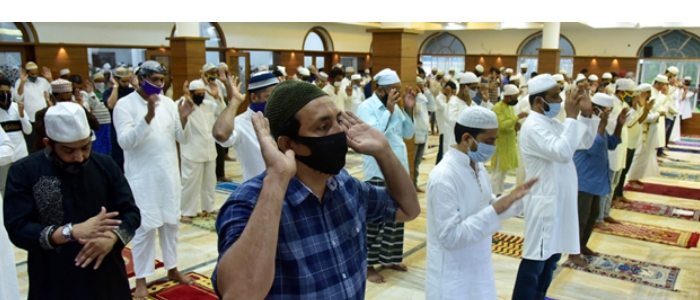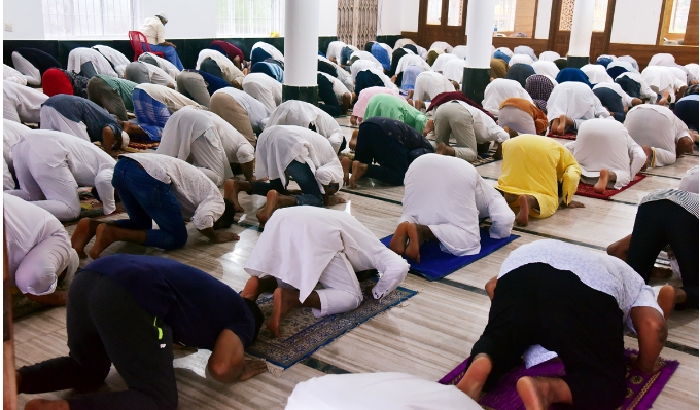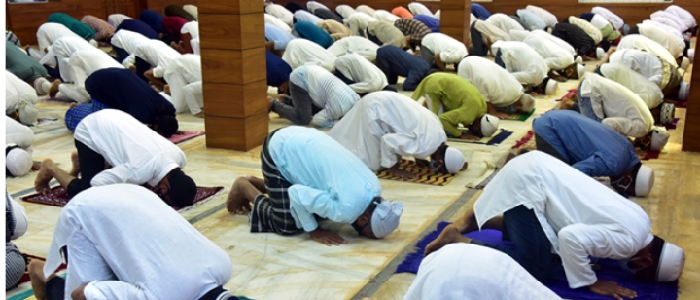A group of 114 armed forces veterans have written an open letter to Prime Minister Narendra Modi condemning the recent attacks on Muslims and Dalits in the country. The Armed Forces comprise of the Indian Army, Indian Navy, and Indian Air Force.
 The veterans expressed frustration over the relentless vigilantism of the self-appointed protectors of Hinduism. In the letter, the veterans said they stand with the ‘Not in My Name’ campaign and that the Armed Forces stand for “Unity in Diversity”. They added the current situation in the country is that of fear, intimidation, hate and suspicion. They also condemned the ‘clampdown’ on freedom of speech.
The veterans expressed frustration over the relentless vigilantism of the self-appointed protectors of Hinduism. In the letter, the veterans said they stand with the ‘Not in My Name’ campaign and that the Armed Forces stand for “Unity in Diversity”. They added the current situation in the country is that of fear, intimidation, hate and suspicion. They also condemned the ‘clampdown’ on freedom of speech.
Full text of the letter
We are a group of Veterans of the Indian Armed Forces who have spent our careers working for the security of our country. Collectively, our group holds no affiliation with any single political party, our only common commitment being to the Constitution of India.
It saddens us to write this letter, but current events in India have compelled us to register our dismay at the divisiveness that is gripping our country. We stand with the ‘Not in My Name’ campaign that mobilised thousands of citizens across the country to protest against the current climate of fear, intimidation, hate and suspicion.
The Armed Forces stand for “Unity in Diversity”. Differences in religion, language, caste, culture or any other marker of belonging have not mattered to the cohesion of the Armed Forces, and servicemen of different backgrounds have fought shoulder to shoulder in the defence of our nation, as they continue to do today. Throughout our service, a sense of openness, justice and fair play guided our actions. We are one family. Our heritage is like the multi-coloured quilt that is India, and we cherish this vibrant diversity.
However, what is happening in our country today strikes at all that the Armed Forces, and indeed our Constitution, stand for. We are witness to unprecedented attacks on society at large by the relentless vigilantism of self-appointed protectors of Hinduism. We condemn the targeting of Muslims and Dalits. We condemn the clampdowns on free speech by attacks on media outlets, civil society groups, universities, journalists and scholars, through a campaign of branding them anti-national and unleashing violence against them while the State looks away.







Comments
Where was the #notinmyname brigade when atrocities in Bengal came to light ?
Let the-divisive forces raising their heads after British left be taught a lesson that India chose to be a secular nation and in the grab of cow vigilante these wolves have no place in our society. Mob lynching is threating the fabric of our nation and it is the duty of all of us to be vigilant and save the nation from the clutches of these self styled but supported by the ruling outfits.
These are the bunch of scamsters who thrived in the Scangress regime and are feeling increasingly out of place.
These are the veterans who were busy doing all sorts of scams under the Scamgress regime and now are feeling lost in the new regime.
This Modi has given us nothing but filled the entire country n spread so much hatred.. that ll take decades to get rid off.. I apologies to everyone that me n my family voted for him... will never EVER happen again
Feku and so called bakths making money and utilising in the name of indian army and patriotism
No use. If feku intented to do something, he will do.
Add new comment